About The Ringer Center Greensboro
The Ringer Center Greensboro is a facility that provides a wide range of services to those struggling with addiction and mental health issues. They offer both inpatient and outpatient treatment options, as well as a variety of different therapy modalities. They are dedicated to helping their clients heal and recover, and offer a variety of resources and support to help them in their journey.
Addiction Treatment Programs
Alcohol Rehab
The best way to achieve recovery from alcohol use disorder is by completing a high-quality alcohol rehab in North Carolina and applying the tools you learn to stay in sobriety. In an alcohol program you’ll not only receive treatment, but you’ll participate in activities, receive peer support, and learn how to have fun without alcohol.
Dual Diagnosis
For many people in North Carolina, dual diagnosis treatment that addresses mental health and substance use is essential to their recovery. In dual diagnosis programs, the activities, peer support, and counseling are tailored to the unique needs of those with mental health concerns. This may include additional therapy, medication, or peer support.
Opioid Addiction
Facilities that offer substance use treatment in North Carolina can give you the skills and tools you need to break free from opioid addiction. Common services include counseling and classes on coping skills, emotional management, communication, and other key life skills. Opioid rehab programs can provide inpatient or outpatient treatment.
Adult Program
Adult program programs in North Carolina address the specific needs of this stage of life. In an adult program, the activities, peer support, and counseling are tailored to the unique needs of this age group. This may include talking about how to build a career, raise a family, and handle the many responsibilities of independent living.
Men's Rehab
A men’s rehab in North Carolina can provide every level of care while addressing the unique needs of men. In a men’s program, the activities, peer support, and counseling are tailored to the unique needs of men. This may include talking about career development, fatherhood, communication strategies, and more.
Women's Rehab
Choosing a women’s rehab in North Carolina can be a great way to manage gender-specific issues while also addressing substance use. In a women’s program, the activities, peer support, and counseling are tailored to the unique needs women have. This may include talking about building a career, motherhood, relationship safety, and more.
Young Adult Rehab
A young adult rehab in North Carolina addresses the recovery needs of clients in this life stage and gives them the tools they need to succeed. In a young adult program, the activities, peer support, and counseling are tailored to the unique needs of this age group. This may include talking about how to start a career, have a family, and live independently.
Senior Rehab
Insurance Coverage
Medicaid
How do you pay for rehab in North Carolina? If you qualify, a good option is Medicaid. You’ll need to choose a program that accepts Medicaid as payment, and you can access multiple levels of care, including detox, inpatient, and outpatient treatment.
Private insurance
If you’re looking for ways to pay for rehab in North Carolina, consider using private insurance. Insurance plans can pay some or all of the costs of rehab. Each plan has different coverage details, and you’ll pay less if you choose a treatment center in the plan’s network. Contact the insurer to find out more information.
Self-pay options
In North Carolina, one option to pay for substance use treatment is self-pay, also known as private pay. You can use a medical loan, write a check, or send money to the center electronically. Check on the fee structure, which can vary depending on the type of care.
Financial aid
Paying for rehab in North Carolina can be done in multiple ways, including using financial aid programs if you qualify. Community groups or non-profits in your area may offer assistance, or you might find a treatment program that has grants or scholarships.
Medicare
When you’re planning to use Medicare to pay for rehab in North Carolina, there are a few details to keep in mind. You’ll want to find out what treatment centers accept your plan and get the details on what out-of-pocket costs you might have, such as deductibles and copays.
Military insurance
Paying for rehab in North Carolina can be done in multiple ways, including using military insurance. Plans vary, so contact the insurer to find out what treatment centers are in your plan’s network and to learn coverage details.
Levels of Care
- 1
Detox Treatment
If you’re ready to break free from addiction in North Carolina, the first step is detox. Detox gets you ready to start building new habits, creating healthy relationships, and learn healthy coping strategies and other essential life skills.
- 2
Outpatient Rehab
If you struggle with addiction in North Carolina, outpatient care is one option for rehab. You’ll live at home or in sober living outside of sessions. During outpatient treatment, clients have independence outside of sessions, allowing them to work, attend school, and practice their new habits in real-world situations.
- 3
Aftercare Support
Aftercare in North Carolina will help you connect with resources and support from others so you can encourage each other over the long term. A strong aftercare program can include ongoing counseling, education and employment support, housing services, and connections to community resources.
Therapies
Cognitive Behavior Therapy
Receiving cognitive behavioral therapy in North Carolina helps you identify your automatic interpretations of situations and how that impacts your behavior. CBT can help you identify and challenge maladaptive thoughts, calm your mind, and face your fears rationally.
Dialectical Behavior Therapy
Receiving dialectical behavioral therapy in North Carolina helps you identify your strengths and learn how to create a better life for yourself. DBT can help you replace problem behaviors with skills that give you a healthier way to manage stress and handle substance use triggers.
Experiential Therapy
Experiential therapy allows you to use activities such as art and music to express your emotions and work through trauma. Substance use treatment includes detox, inpatient treatment, and outpatient care, and experiential therapy may be a part of each of these stages. The goal is to help clients work through their emotions using healthy strategies instead of substance use.
Family Therapy
If you struggle with addiction in North Carolina, it’s common to have broken and dysfunctional family relationships. Family therapy can help you address those issues and find support from your loved ones. Family therapy is a common part of both inpatient and outpatient substance use treatment and may be used to help address trauma, build better relationships, and help loved ones become part of your support network.
Group Therapy
If you struggle with addiction in North Carolina, it’s common to feel like no one understands you. Group therapy can help you find common perspectives and support. In rehab, group therapy is only one of the elements of treatment, along with activities, peer support, individual counseling, relapse prevention, and more. Together, all these methods support you in establishing long-term recovery.
Individual Therapy
In North Carolina, individual therapy allows you to work one-on-one with a professional to address your past experiences and substance use triggers. This support and accountability help you establish recovery. Substance use treatment includes detox, inpatient treatment, and outpatient care, and individual therapy may be a part of each of these stages. The goal is to help clients address the roots of addiction, develop motivation to change, and create new habits for a substance-free life.
Rational Behavioral Therapy
Rational behavior therapy in North Carolina involves being aware of how your beliefs are connected to your feelings and behavior. RBT can help you identify and challenge maladaptive beliefs, reframe them, and face triggering events rationally.
Trauma Therapy
When you’ve experienced trauma, it’s natural to try to protect yourself from further harm. Trauma-informed therapy in North Carolina can help you see how substance use is connected to your past experiences and how you can learn to care for yourself in healthier ways. Substance use and trauma are interrelated, and trauma-informed therapy involves working with the therapist and your support network to create healthy coping skills, become empowered, and improve resilience.
Eye Movement Desensitization and Reprocessing
Accreditations
Location
Contact The Ringer Center Greensboro
Top Drug Rehab Centers in North Carolina
-
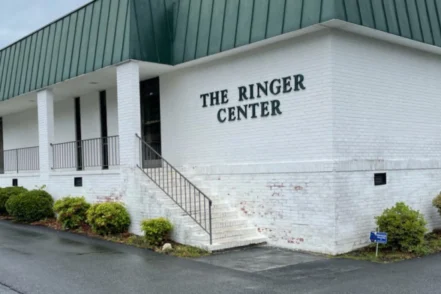 North Carolina
North CarolinaThe Ringer Center Greensboro
213 East Bessemer Avenue Greensboro, North Carolina 27401
-
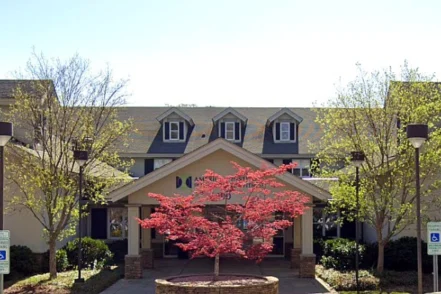 North Carolina
North CarolinaCarolina Performance
8300 Health Park, Suite 201 Raleigh, North Carolina 27615
-
 North Carolina
North CarolinaSilver Ridge
183 Old Turnpike Road Mills River, North Carolina 28759
-
 North Carolina
North CarolinaDilworth Center
2240 Park Road Charlotte, North Carolina 28203
-
 North Carolina
North CarolinaCrossroads of Greensboro
2706 North Church Street Greensboro, North Carolina 27405
-
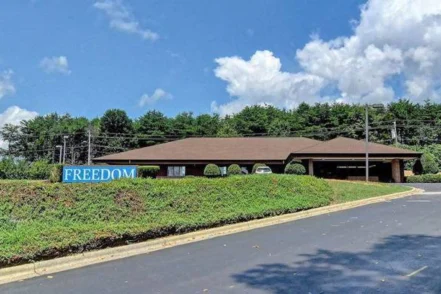 North Carolina
North CarolinaFreedom Detox
1089 X Ray Dr Gastonia, North Carolina 28054
-
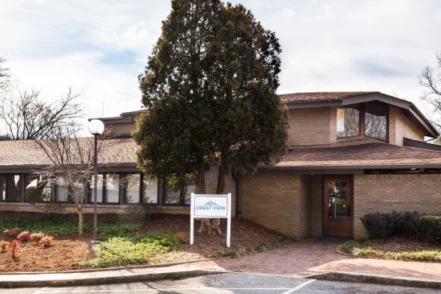 North Carolina
North CarolinaCrest View Recovery Center
90 Asheland Avenue, Suite D Asheville, North Carolina 28801
-
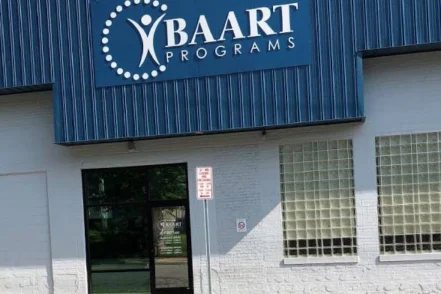 North Carolina
North CarolinaBAART Programs Durham
800 N Mangum Street, Suite 400 Durham, North Carolina 27701
-
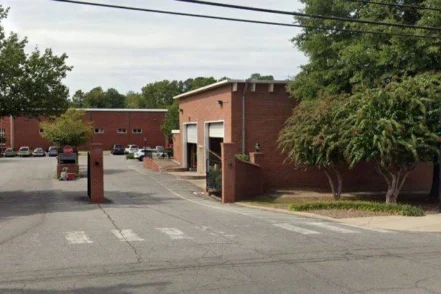 North Carolina
North CarolinaTriangle Residential Options for Substance Abusers
1820 James Street Durham, North Carolina 27707
-
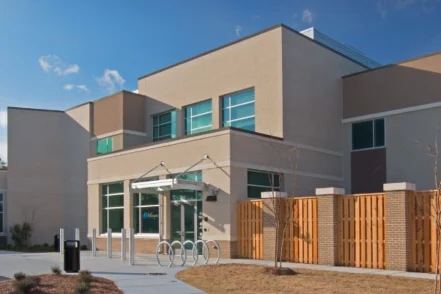 North Carolina
North CarolinaWilmington Treatment Center Troy Drive
2520 Troy Drive Wilmington, North Carolina 28401
-
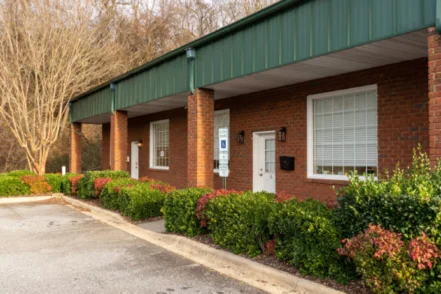 North Carolina
North CarolinaAsheville Recovery Center
9 Old Burnsville Hill Road, Suite 7 Asheville, North Carolina 28804
-
 North Carolina
North CarolinaHolly Hill Hospital
3019 Falstaff Road Raleigh, North Carolina 27610
-
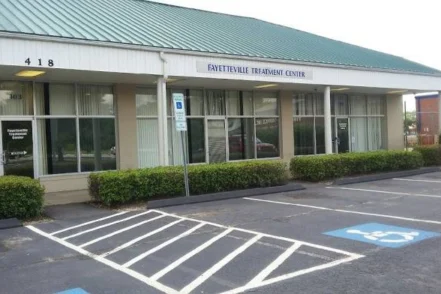 North Carolina
North CarolinaNew Season Fayetteville Treatment Center
Person St, Suite 103 Fayetteville, North Carolina 28301
-
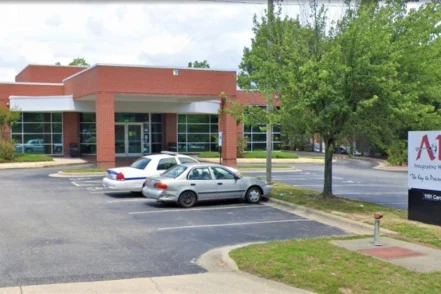 North Carolina
North CarolinaAlcohol and Drug Services Greensboro
1101 Carolina Street Greensboro, North Carolina 27401


